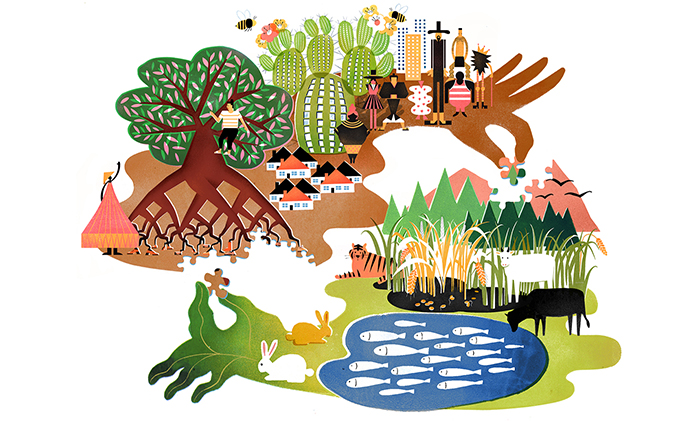Robaird O’Cearbhaill
Hong Kong correspondent
As Laudato si’ states in the title, Caring for our common home is a very high priority. That is what native people have been doing for millenia around the globe, as this series pointed out. In the US, to take one, anciently began, indigenous ecological success: in depth research shows how the natives did not just sustain, but greatly boosted the ecology with plants, forests, animals, food, and fire prevention for 10,000 years. That is over the famous Sierra Nevada range, well known for another reason: the world’s highest and largest trees, the giant sequoias or redwoods only grow there.
A vast area, the mountains from North to South California measuring 640 kms long to 110 kms wide is now home to dozens of tribes. Widespread research about the native ecology there covers back through 1920s and through the 20th century and was officially dispatched to Washington: Sierra Nevada. Ecosystem Project: Final report to (US) Congress, Assessments and scientific basis for management options. (Davis University of California Centers for Water and Wildland Resources, 1996).
The findings arrived at through hundreds of academic papers and books, illustrated how capable and beneficial the indigenous peoples were there, and suggested that their knowledge must be incorporated into government forest and land management institutions.
Studies about native peoples’ contributions to local ecologies showed they increased biodiversity in plants and animals, and used fire to promote it and to prevent fires from extending to large areas, as Australian aborigines do (see part 2 of this series). This native ecological knowledge of practical fire prevention has been brought to the forefront after the massive, never before seen, extensive California wildfires of the 21st century.
Just as in Australia, where huge wildfires have destroyed vast tracts of habited land, extensive fires were unknown until the colonial times, and after independence. One wonders why the man-made beneficial intervention to local ecologies was reduced to a large degree.
For fire prevention, some scientists and damage care officials are trying to build on ancient native experience to limit natural or human-caused fires after the conflagrations in the US and Australia
Likewise in Australia and the US, academics have been pressuring officials to restore former ecologies. From expert research in both countries two conclusions are clear: that with the former ecologies, plants and animals were healthy, productivity and biodiversity improved, which served as effective fire limitation. For centuries science failed to accept that traditional ecological knowledge should have an essential part in ecology. (Image: Yes Magazine)


 Follow
Follow


